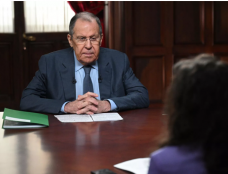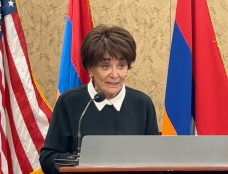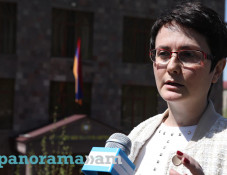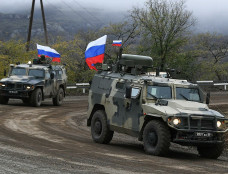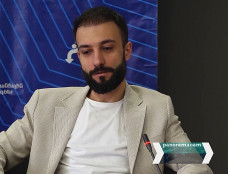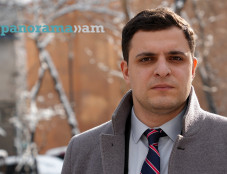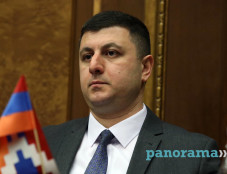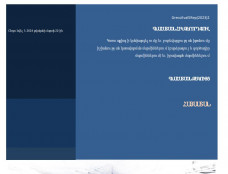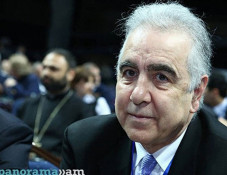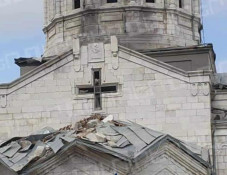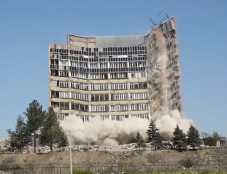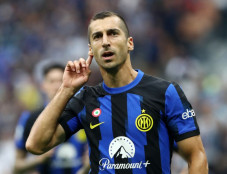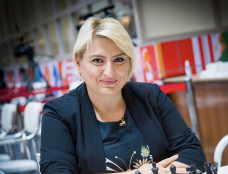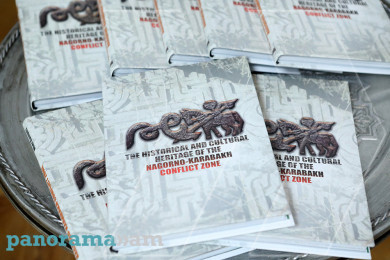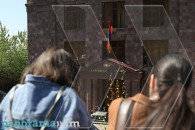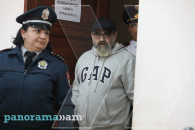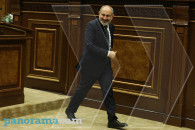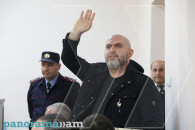
‘The Armenians want an acknowledgment that the 1915 massacre was a crime’
By Geoffrey Robertson, the Guardian
Just before the invasion of Poland, Adolf Hitler urged his generals to show no mercy towards its people – there would be no retribution, because “after all, who now remembers the annihilation of the Armenians?” As the centenary of the Armenian genocide approaches – it began on 24 April 1915, with the rounding up and subsequent “disappearance” of intellectuals and community leaders in Constantinople – remembrance of the destruction of more than half of the Armenian people is more important than ever. Although, as Hitler recognised in 1939 (and it is still the case today), the crime against humanity committed by the Ottoman Turks by killing the major part of this ancient Christian race has never been requited, or, in the case of Turkey, been the subject of apology or reparation.
The “Young Turks” who ran the Ottoman government did not use gas ovens, but they did massacre the men, and sent the women, children and elders on death marches through the desert to places we only hear of now because they are overrun by Isis. They died en route in their hundreds of thousands from starvation or attack, and many survivors died of typhus in concentration camps at the end of the line. The government ordered these forced deportations in 1915, and then passed laws to seize their lands and homes and churches on the pretext that they had been “abandoned”.
The destruction of more than 1 million Armenians was declared a “crime against humanity” by Britain, France and Russia in 1915, and these allies formally promised punishment for what a US inquiry at the end of the war described as “a colossal crime – the wholesale attempt on a race”. But the Treaty of Sèvres, designed to punish the Young Turks for this “colossal crime” – now called “genocide” – was never implemented. Modern Turkey reportedly funds a massive genocide denial campaign, claiming that the death marches were merely “relocations” required by military necessity and that the massacres (the Euphrates was so packed with bodies that it altered its course) were the work of a few “unruly’ officials. In Turkey, today, you can go to jail – and some do – for affirming that there was a genocide in 1915; this counts as the crime of “insulting Turkishness” under Section 301 of its criminal code.
Conversely, in some European countries, it counts as a crime to deny the Armenian genocide. The parliaments of many democracies – France, Germany, Spain, the Netherlands, Russia, Greece and Canada, for example, recognise it explicitly, as do 43 states of the US. The problem is that Turkey – “neuralgic” on the subject (the word used privately by the British Foreign Office to describe its attitude) – has threatened reprisals and is too important geopolitically to provoke by affirming the genocide, lest it carry out threats to close its airbases to Nato and its borders to refugees. Thus Barack Obama, who roundly condemned the Armenian genocide in 2008 and promised to do so when elected president, dares not utter the “g” word. Instead, he calls it Meds Yeghern (Armenian for “the great crime”) and asserts that his opinion has not changed, although you must Google his 2008 campaign speech to discover his opinion that it was genocide.
As for Britain, the story is even stranger. No nation, in 1915, was more determined to expose and punish what it termed a “crime against humanity”. The evidence of the atrocities collected in Arnold Toynbee’s Blue Book, although published by the government for propaganda purposes, has withstood all attempts to discredit it. Winston Churchill condemned the “infamous general massacre and deportation of Armenians … in one administrative Holocaust”, and Britain even attempted to put some of the perpetrators on trial in Malta, only to find that there was no international criminal law at the time to punish government officials for killing their own people. However, in recent years, the FCO has briefed ministers to call the events a “tragedy” but to deny genocide because “the evidence is not sufficiently unequivocal” – an oxymoronic term (something is either unequivocal or it is not).
The FCO certainly knew that this “genocide equivocation” was dodgy: one internal memo obtained under the Freedom of Information Act admits that “HMG is open to criticism in terms of the ethical dimension. But given the importance of our relations (political, strategic and commercial) with Turkey … the current line is the only feasible option.” Ministers were also advised to avoid attendance at any commemoration of the Armenian genocide, and to avoid any mention of it at Holocaust Day memorials.
This position could not hold, especially after the International Court of Justice declared the Bosnian Serbs guilty of genocide at Srebrenica, for killing 8,000 men and deporting up to 25,000 women and children. The claim that the evidence is “not sufficiently unequivocal” was then abandoned by the FCO (although the Turkish government website claims that this is still the UK’s position), and the search began for a formula that could answer the question: “Will HMG recognise the Armenian genocide?” without answering the question.
Now, the FCO claims to empathise with the “suffering” of the Armenian people in the “tragedy” of 1915, and says it is not for governments to decide a “complex legal question”. It has thus moved the “line” from genocide equivocation to genocide avoidance – a move slightly in the right direction. Last year there was even talk at the FCO of giving to the Armenian Genocide Museum copies of some files in the National Archives attesting to the Ottoman atrocities: this was turned down, ostensibly because the photocopying costs of £431.20 could not be afforded, but probably because the Turks would go ballistic.
The FCO files recently recorded ministerial approval for “more active participation” in centenary events, but there has, as yet, been no lifting of the ban on reference to the Armenian genocide on Holocaust Memorial Day. The real test of this government’s willingness to accept historical truth will be whether it sends a senior minister – or any minister at all – to the genocide commemoration in Yerevan, the Armenian capital, on 24 April. Ministers will be present at Gallipoli for the centenary of the ill-fated British-Anzac Dardanelles landing on 25 April, and it would be simple for them to fly there from Yerevan, were it not for the certainty that Turkey would deny them entry.
The Dardanelles landings were in fact the trigger for the commencement of the genocide, and (together with Russian military activity on Turkey’s eastern front) were used as an excuse for the destruction of the Armenians, on the pretext that they might support the allied invasion. But the evidence of the government’s genocidal intent is overwhelming, coming as it does from appalled German and Italian diplomats and neutral Americans, to whom the Young Turk leaders admitted that they were going to eliminate “the Armenian problem” by eliminating the Armenians.
There can never be justification for genocide. This was understood by Raphael Lemkin, the Polish lawyer who coined the word and worked tirelessly to have the annihilation of the Armenians recognised as an international crime. In 1948 the UN’s Genocide Convention achieved Lemkin’s objective. Its definition of the crime includes the destruction of part of a racial or religious group by, for example, inflicting on it life-threatening conditions (such as death marches). Applied to 1915, this produces a verdict of guilt, beyond reasonable doubt.
It was, of course, a century ago: does it still matter? A century is just within living memory: last year a 103-year-old woman, once a small child carried by her mother across burning sands, took tea with Obama and the world’s most famous Armenian descendant (Kim Kardashian!). The mental scars and psychological trauma for the children and grandchildren of survivors throughout the diaspora will continue until Turkey acknowledges the crime, and offers an apology.
International law may provide some assistance: there are assets expropriated in 1915 that can still be traced, and many ruined churches that can be restored and returned. Armenians want restoration of their historic lands in eastern Turkey, which is asking too much (although I have suggested that the majestic Mount Ararat, overlooking Yerevan, might be handed over by Turkey as an act of reconciliation). But what they want most is what they are plainly entitled to have: an acknowledgment from Turkey, and for that matter from the UK, that what happened to their people in 1915 was not a tragedy but a crime. A crime against humanity – as Britain said in 1915, and should, in 2015, repeat.
Newsfeed
Videos





